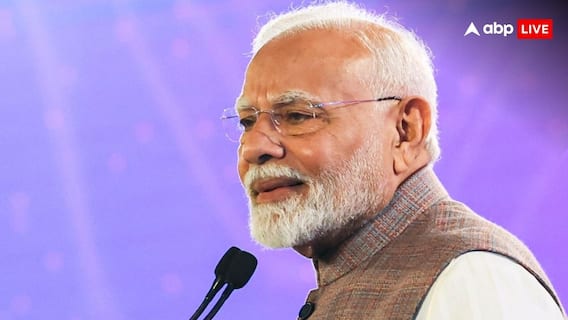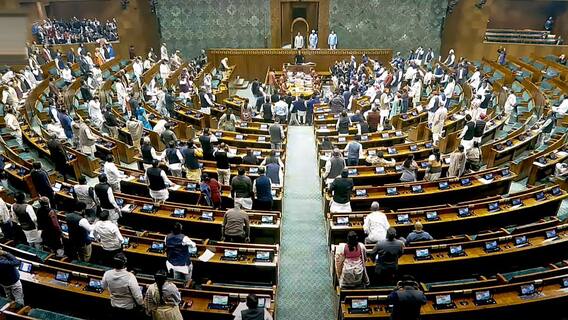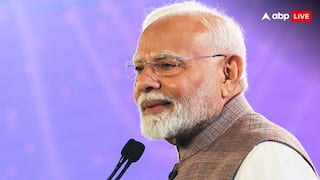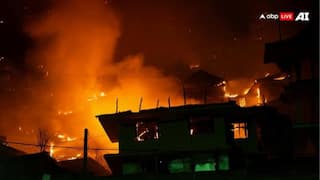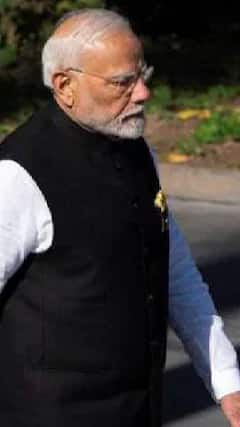Breast Cancer Awareness Month 2023: What Is Breast Cancer? Know Its Signs, Symptoms, Treatment, Risk Factors And Prevention
Breast cancer ranks as the prevailing form of malignant growth in women, not only in India but across the world.

Every year, the month of October is marked as Breast Cancer Awareness Month. Breast cancer is a prevalent and serious health concern affecting millions of women worldwide. While it remains a significant challenge, recent medical advancements have brought new hope in the realms of treatment and prevention.
According to Dr. Rajashekar C Jaka, who is a Consultant in Surgical Oncology and Robotic Surgery, at Manipal Hospital, Whitefield, Bangalore, "Breast cancer ranks as the prevailing form of malignant growth in women, not only in India but across the world. About 25.8 per 1,00,000 women are diagnosed with carcinoma of the breast against the mortality rate of 12.7 in 1,00,000 women."
What Is Breast Cancer?
Dr. Mala Mathur Sharma, who is a Clinical Professor, at Amrita Hospital, Kochi, (Speciality: General Surgery, Breast Diseases Division) said, "It is characterized by abnormal and uncontrolled cell growth within the breast glands and milk ducts. Initially, these cells remain within the ducts, where they are referred to as carcinoma in situ, or stage 0. As the condition progresses, these cells breach the duct lining and begin to invade the breast tissue, transitioning to invasive cancer. In later stages, usually stages 1 and 2, they can migrate to the lymph glands in the axilla. Once they cross the lymphatic barrier, the cancer cells can enter the bloodstream and affect distant organs such as the brain, bone, liver, ovaries, and lungs, indicating stage 4, which is beyond cure. Therefore, early medical attention is critical to ensure timely treatment for breast cancer."
"A breast cancer diagnosis is a life-altering event for a woman, impacting her career, and family commitments, and introducing the stigma associated with the disease. The looming prospect of chemotherapy and the potential loss of a breast create a myriad of emotions. Additionally, various prevalent myths and misconceptions about breast cancer compound a woman's mental distress. It's crucial to dispel unfounded fears about this disease because raising awareness among women can encourage early detection and foster a more positive attitude toward a disease that is fully treatable when identified promptly," she added.
"Firstly, it's essential to understand that not all breast-related issues are indicative of breast cancer. In fact, more than half of breast-related medical concerns are benign and require straightforward treatment and follow-up, though the anxiety they evoke in patients can be significant," she said.
Risk Factors Of Breast Cancer:
In this regard, Dr Rajashekar C Jaka said the following:
1. Age:
Age is the single most significant non-modifiable risk factor of breast cancer. Breast cancer deaths are common among women between the ages of 55 and 64 years. However, it is worth mentioning that it has become a growing concern among younger females as the current trend sees women between the age group of 40-50 years getting affected by breast cancer. Younger women are found to be diagnosed with a more aggressive form of breast cancer with lower survival rates compared to women who are diagnosed in later life.
2. Family History:
Family history and/or personal history of cancer and genetic mutation, such as BRCA1 and BRCA2, are other risk factors for breast cancer that are non-modifiable. The menstrual cycle and reproductive health also play a part in the development of breast cancer. It is being said that women who had their first menstrual period before the age of 12 years, never had children (nulliparity), had late pregnancy (after 30 years of age), didn’t breastfeed their babies, and went through menopause after 55 years are at a greater risk.
3. Lifestyle Changes:
If we talk about modifiable factors, changes in lifestyle remain a major cause of the increasing rate of all cancer cases. Poor dietary habits leading to obesity, alcohol and tobacco consumption, hormone replacement therapy, stress, and radiation exposure – are all risk factors for breast carcinoma.
Causes Of Breast Cancer:
Dr. Sonal Singhal, a Consultant who is an Obstetrician and gynaecologist, at Motherhood Hospital, Gurgaon said, "The primary cause of breast cancer is still not fully understood, but we do know that a combination of genetic, hormonal, and lifestyle factors can contribute to its development. Genetics plays a significant role, with a family history of breast cancer increasing one's risk. Hormonal factors, such as early menstruation, late menopause, or hormone replacement therapy, can also elevate the risk."
Lifestyle choices matter greatly. Obesity, excessive alcohol consumption, and a sedentary lifestyle are risk factors that can be modified through healthier choices. Moreover, a diet rich in fruits and vegetables can have a protective effect."
Symptoms That May Indicate Breast Cancer:
Dr Vinay Bhatia, who is the Head of Molecular Biology National Reference Lab, at Oncquest Laboratories Limited, Gurugram said, "Though it can vary significantly from person to person, breast cancer often presents several common signs and symptoms. The most prominent of these is the presence of a breast lump. It is advised to do a self-breast examination regularly, once a month. Breasts change at different times of the month, the ideal time to check is just after the period. For menopausal women, checking once a month at any time is fine. This lump can be situated anywhere along the chest wall, extending from the breast to under the armpit. However, breast cancer doesn't always follow this textbook definition."
In addition to that, Dr. Sushruta Mysore Shankar, who is a Consultant, Breast Surgery and Surgical Oncology, at SPARSH Hospital, Bangalore also mentioned the following symptoms:
- Persistent or unusual pain in the breast or nipple, nipple changes such as discharge or inversion
- Skin changes like redness, dimpling, puckering, or scaling. -Decreased appetite.
- Unintentional weight loss.
- Pain in the back or abdominal bloating
- Additionally, the prominence of veins on one breast should not be overlooked.
- Lastly, the development of a persistent rash around the nipple or areola warrants evaluation by a Breast Surgeon.
Monitoring for these signs and seeking prompt medical attention when they arise is essential for maintaining breast health.
How Can Stress Cause Breast Cancer?
Dr. Mickey Mehta, who is a holistic health guru and spiritual life coach said, "Any kind of trauma, subtle or strong, average or accentuated, puts us on the path of fight and flight response. The body becomes reactive, and the body becomes a chemical factory, reacting. The body's defense mechanism primarily goes out of hand, ungoverned, and instead of protection it can kill, if not checked, well in time. All kinds of such influences on us disturb our immunity, immunoglobulins, T-cells, our B-cell secretion, they disturb our digestion, process of absorption of nutrients, and elimination of toxins. All this becomes a force multiplier effect and of course, then that develops into cysts, lumps, and knots which then keep growing, crowding the organ, and then of course begin to migrate and spread within the body."
"Our bodies release the hormone cortisol when we are under stress. The stress hormone cortisol has been associated with an increased risk of breast cancer. Additionally, stress can hinder our bodies' ability to combat cancerous cells. Neurotransmitters like norepinephrine are released when the body is under stress, which stimulates cancer cells. When cancer cells are stimulated, they may be able to resist death, develop, and adapt to different bodily settings, which will enable them to spread throughout the body. Chronic stress exposure has been associated with adverse adjustments in the body's homeostasis. Telomere shortening caused by stress may affect cellular aging and have negative effects on health. This is how stress can cause cancer of the breast," he added.
Additionally, Dr. Meghal Sanghavi, who is a Surgical Oncologist, at Wockhardt Hospitals, Mumbai Central said, "One of the key effects of stress is its influence on dietary habits. Many individuals, when under stress, turn to comfort foods, often high in sugar and unhealthy fats. Such dietary choices can lead to weight gain and the accumulation of visceral fat. This weight gain can disrupt hormonal balance, particularly increasing estrogen levels, which has been associated with a higher risk of breast cancer."
"Breast cancer is hormone-modulated, meaning hormonal imbalances can play a significant role in its development. Stress can disrupt the hormonal balance, contributing indirectly to breast cancer risk. Delayed marriages, postponed childbirth, and not breastfeeding for an extended duration can also be influenced by stress, all of which have been linked to an increased risk of breast cancer," she added.
Breast Cancer Screenings:
Dr. Mala Mathur Sharma said, "It's advisable for all women, regardless of age, to perform monthly self-breast examinations, preferably after their periods, and to seek medical help if they notice recent changes in breast texture or shape. Women with a family history of breast cancer, such as a mother, sister, or aunt, should consider early breast cancer screening."
"Breast cancer screenings involve tests conducted to detect breast cancer in its early stages before it becomes palpable. The most common method is a mammogram, which utilizes X-rays to identify abnormalities in breast tissue. This is often complemented by a breast ultrasound, which allows for visualization and biopsy of lesions under ultrasound guidance, reducing the need for unnecessary surgeries. It is generally recommended for all women to begin mammogram screenings at or after the age of 40, or at least have an initial mammogram as a baseline," she continued to say.
"In the case of young women and those with a strong family history of breast cancer, screenings may commence earlier. Given that mammograms might not provide a clear picture in such cases due to glandular breast tissue and hormonal fluctuations, an MRI or contrast-enhanced mammogram is recommended," she added.
Treatment Breakthroughs:
Dr. Jayati Gupta Rakhit, MD, FACC, Co-Founder and Clinical Director at Ohio Hospital in Newtown, Kolkata, will explore some of the latest developments in breast cancer management and strategies for prevention.
1. Targeted Therapies:
One notable advancement in breast cancer treatment is the emergence of targeted therapies. These drugs are designed to target specific molecules or proteins involved in the growth and spread of cancer cells. By pinpointing these key factors, targeted therapies can be more effective while causing fewer side effects compared to traditional chemotherapy.
2. Immunotherapy:
Immunotherapy, a groundbreaking approach to cancer treatment, has shown promise in breast cancer as well. It utilizes the body's immune system to recognize and attack cancer cells. Immunotherapy drugs called immune checkpoint inhibitors can help strengthen the immune response against breast cancer, particularly in cases where traditional treatments may not be as effective.
3. Personalized Medicine:
The concept of personalized medicine has gained prominence in breast cancer treatment. Genetic testing and genomic profiling allow oncologists to tailor treatment plans to an individual's unique genetic makeup. This personalized approach helps identify the most suitable therapies and improves treatment outcomes.
Prevention Strategies:
1. Lifestyle Modifications:
According to Arpita Bose, who is a Dietician at Ohio Hospital, "Prevention begins with a healthy lifestyle. Several factors have been linked to an increased risk of breast cancer, including obesity, alcohol consumption, and lack of physical activity. Making healthier choices such as maintaining a balanced diet, engaging in regular exercise, and limiting alcohol intake can reduce the risk of breast cancer."
2. Mammography and Early Detection:
Mitali Rakhit, who is an MPH, and Vice Chairman at Ohio Hospital said, "From a public health and population level perspective, early detection remains a key element in breast cancer prevention. Regular mammography screenings are vital for detecting breast cancer in its early, more treatable stages. Women are advised to discuss their individual screening schedules with healthcare providers based on their age and risk factors."
4. Genetic Counseling:
Individuals with a family history of breast cancer or specific genetic mutations associated with the disease, such as BRCA1 or BRCA2, can benefit from genetic counselling. Genetic counsellors can assess an individual's risk and provide guidance on preventive measures and surveillance plans.
5. HPV Vaccination:
The human papillomavirus (HPV) has been linked to an increased risk of breast cancer. Vaccination against HPV is not only effective in preventing cervical cancer but can also reduce the risk of breast cancer. HPV vaccination is recommended as a preventive measure, particularly for young individuals.
[Disclaimer: The information provided in the article, including treatment suggestions shared by doctors, is intended for general informational purposes only. It is not a substitute for professional medical advice, diagnosis, or treatment. Always seek the advice of your physician or other qualified healthcare provider with any questions you may have regarding a medical condition.]
Check out below Health Tools-
Calculate Your Body Mass Index ( BMI )
Trending News
Top Headlines






